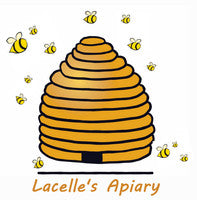Hive Management
In this section you'll find an overview of the kinds of activities that you should be conducting each season. Lacelle's Apiary is here to support you in this process; if you have questions, we'd be delighted to help!
Seasonal management pages
Early Spring
- Spring should be a time for beekeepers to be primarily concerned with sufficient food stores and checking for disease and mite control.
- In the Fall bees normally cluster between the combs near the bottom of the stored honey.
- During the winter, they gradually eat their way upwards.
- As the cluster reaches the top of the hive, food reserves may be depleted.
- Bees will not go down to get food in cold weather weather even if it is present.
- If the cluster is near the top of hive, emergency feeding may be necessary.
- Bees will not take sugar syrup if the temperature's are to cold (below 10 Deg C), also the bees have problems inverting the sucrose and handling the excess water.
- You can feed frames of honey if you are certain they are disease free. Place the frames of honey as close as possible to the cluster without disrupting it.
- Another way to supplement food stores is to feed sugar blocks, placed directly on the cluster with a spacer.
- Supplemental feeding should be continued until natural supplies of nectar become available or the bees may starve.
- For ready made supplemental sugar feeder blocks click this link: http://lacellesapiary.com/collections/feeds-treatments/products/late-winter-feed
- http://www.ontariobee.com/sites/ontariobee.com/files/document/Spring%20Colony%20Management%20web.pdf
- Weather permitting- Spring Cleaning- Unwrap Hives and clean colonies
- Remove dead colonies and determine cause of death.
- Check colony strength- bees, brood, honey and pollen stores.
- Colony inspections should now take place every two weeks and include evaluating the brood pattern, confirming the presence of the queen and / or eggs, evaluating colony growth and available room and monitoring for pests and disease.
- If you install a nuc, allow two weeks for the colony to establish before you inspect it.
- Your bees should be foraging for what they need, but they also need a lot at this time, so remain vigilant and prepared to feed sugar syrup or a pollen supplement if necessary.
- Provide supers if the brood chambers are full and the population/stores are growing with the first honey flows of spring.With new nucs i would feed them once set-up.
